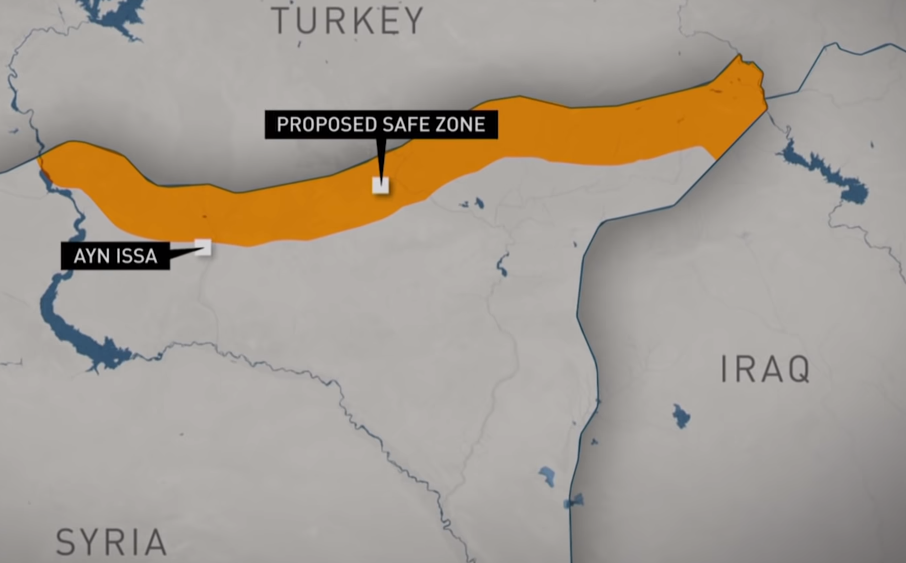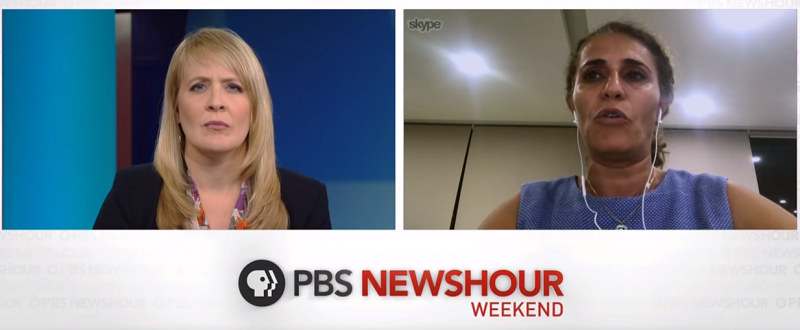Teach About the Turkish offensive and the Kurds in northern Syria
Kurds in Syria face dire circumstances as chaos resulting from the Turkish offensive which began after President Trump's order takes hold.

Share
October 15, 2019
Kurds in Syria face dire circumstances as chaos resulting from the Turkish offensive which began after President Trump's order takes hold.
Share
Consequences for Kurds in Syria After the President's Decision
Educator’s Note on Kurds in Syria: While some context is provided, we suggest you read this short New York Times article “Who Are the Kurds, and Why Is Turkey Attacking Them in Syria?”before teaching the lesson.
On Sunday, President Donald Trump ordered the withdrawal of nearly all 1,000 U.S. troops from northern Syria as Turkey continued a military offensive against Syrian Kurds. Since Trump’s announcement last week, more than 110,000 Syrian Kurds fled their homes.
About 21 million Kurds live in northern Syria, close to Turkey, and are the largest ethnic minority in Syria. Large numbers of Kurdish people also live in Turkey, Iraq and Iran.
On Friday, Hervin Khalaf, a 35-year-old Syrian politician and human rights activist was allegedly dragged from her car and murdered by Turkish-backed paramilitaries. Khalaf was secretary-general of the Future Syria Party, which formed in northern Syria in an area liberated from Islamic State (ISIS). About 11,000 Kurdish forces died helping the U.S. battle Islamic State militants. After facing heavy criticism that he gave the Turkish government a green light to attack our allies, Trump says he will begin economic sanctions on Turkey. Watch the video below and answer the discussion questions. Read along with the transcript here.
1) Focus question: What does it mean to be allies with another country?
2) Why did Trump withdraw U.S. troops from the Turkish-Syrian border?
3) Do you agree with Trump’s decision to withdraw troops? Why or why not?
4) What do you know about the Kurdish people? What was the relationship between the Kurds and U.S. military forces in the region (11,000 Kurdish forces allied with the U.S. died fighting Islamic State; this is a short read: “Who Are the Kurds, and Why Is Turkey Attacking Them in Syria?”)? Why were they considered a strong ally?
5) Media literacy: Sarah El Deebis a reporter with the Associated Press (AP) in Beirut, Lebanon. What do you know about the AP? Why do news organizations like the PBS NewsHour use AP reporters for some stories?

Watch syndicated columnist Mark Shields and New York Times columnist David Brooks join Judy Woodruff to discuss the week’s political news, including President Trump’s attitude toward Kurds in Syria and stance toward Turkey’s attack in Syria: Shields and Brooks on Trump’s Syria pullout, impeachment politics(stop video at 4m:30s mark).
This article was originally posted by PBS NewsHour Extra and can be found here.
